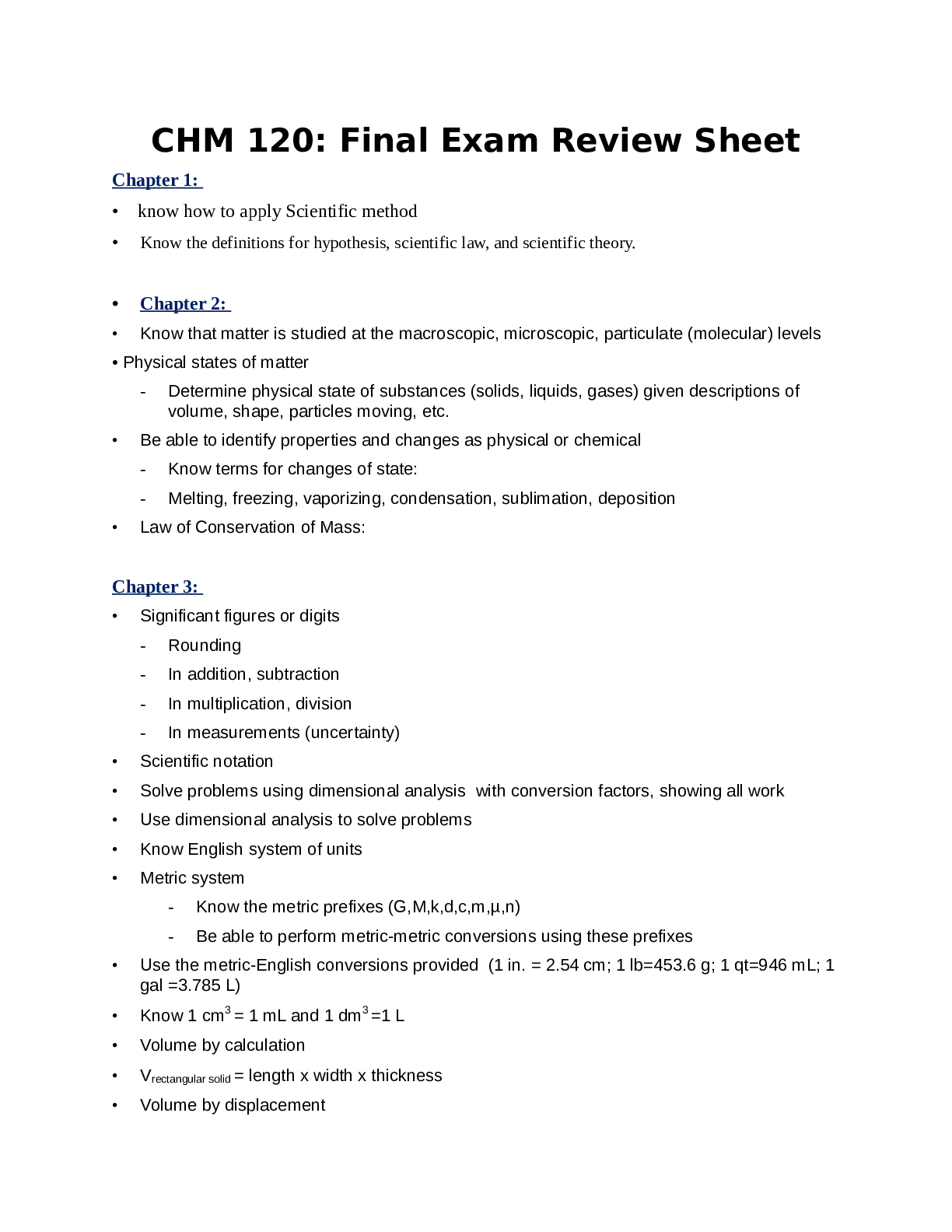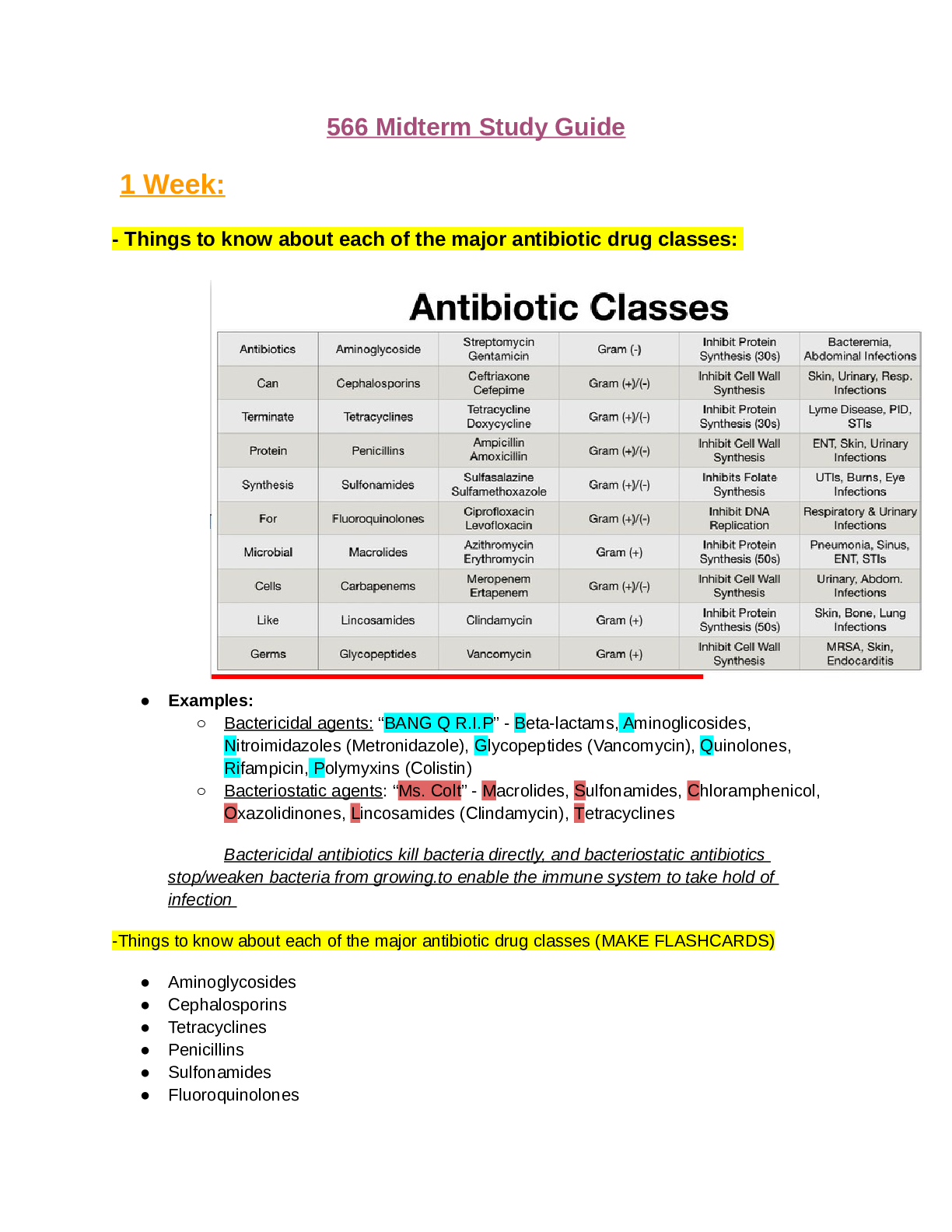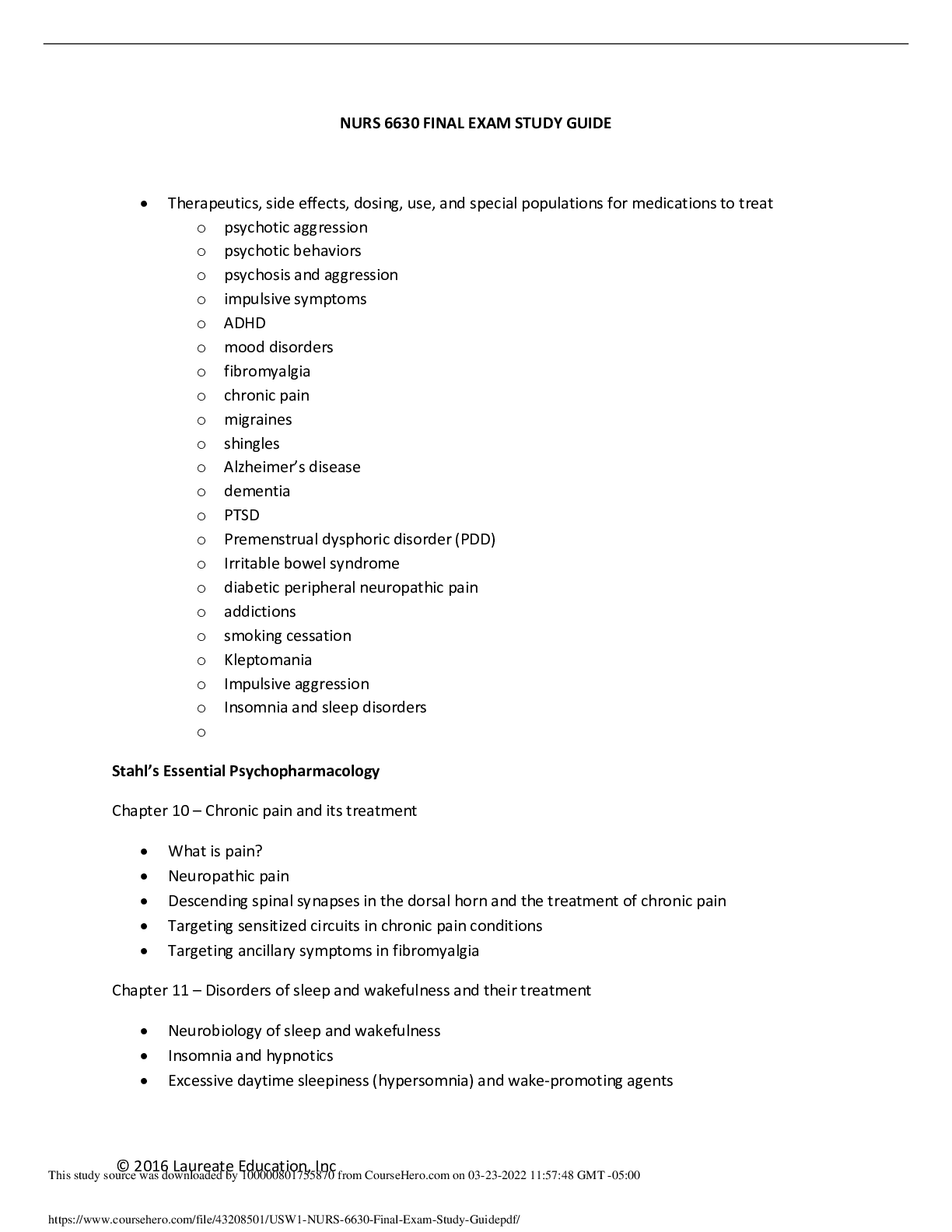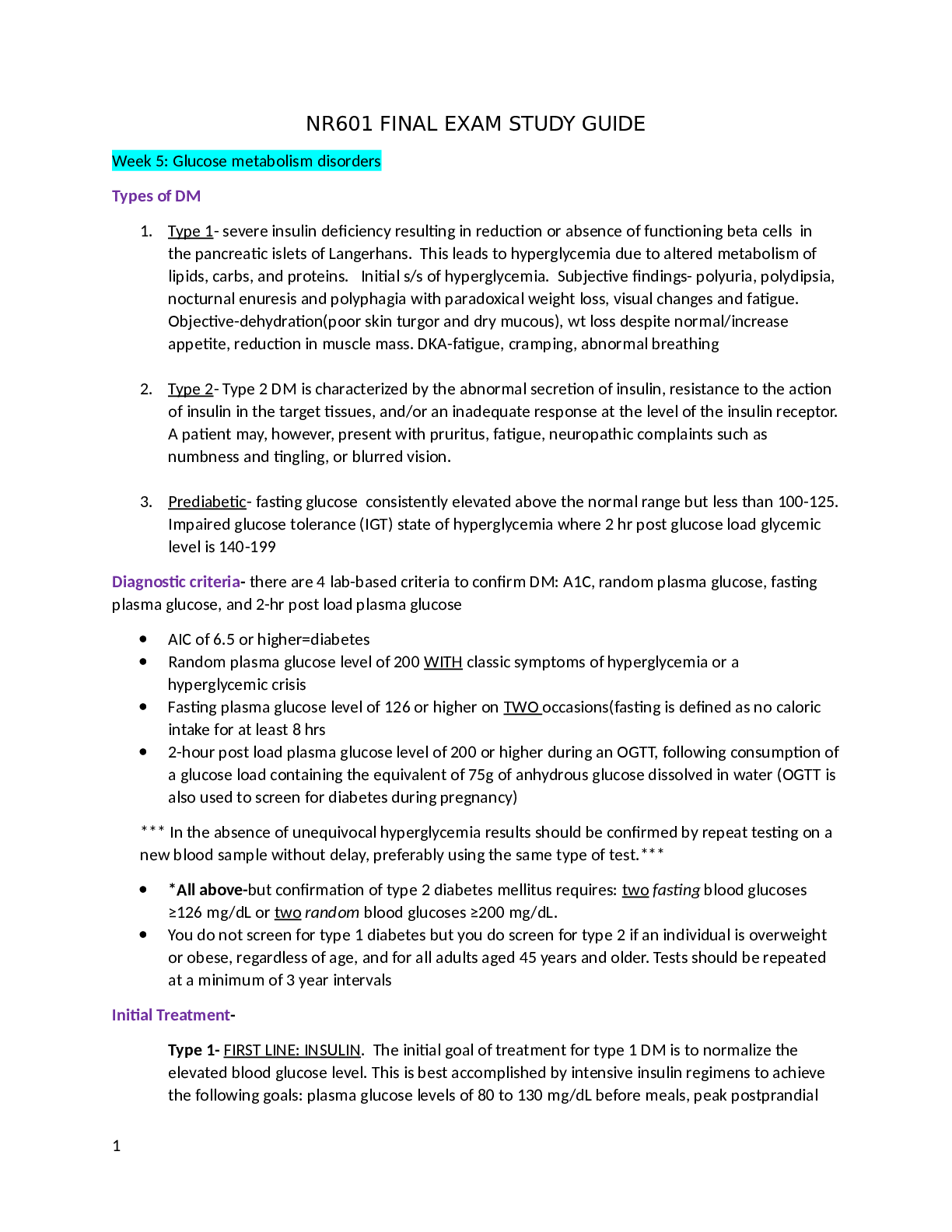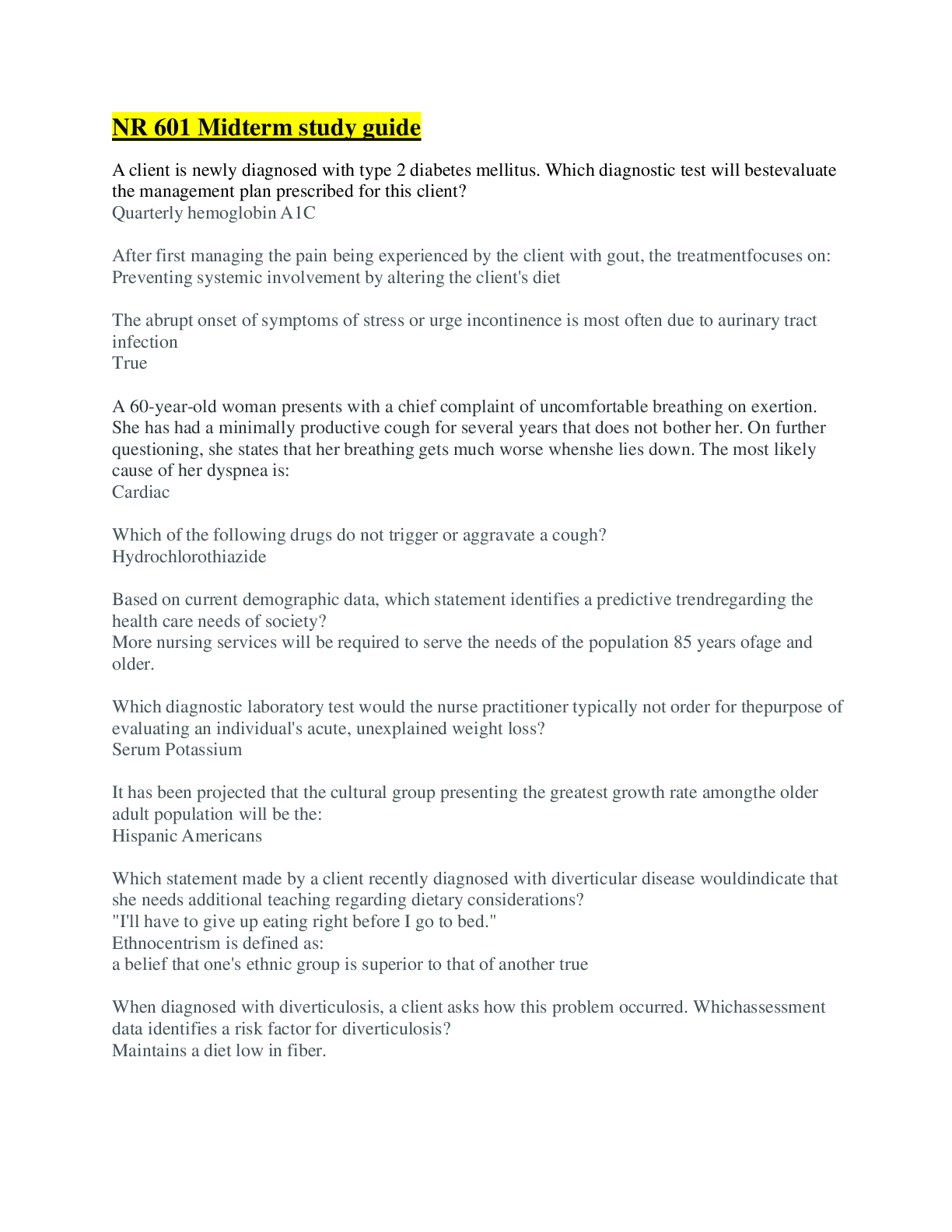*NURSING > EXAM REVIEW > NR 599 Week 8 Final Exam study Guide Complete(Latest Update 2020) (All)
NR 599 Week 8 Final Exam study Guide Complete(Latest Update 2020)
Document Content and Description Below
NR 599 Week 8 Final Exam study Guide. Ethical decision making This refers to the process of making informed choices about ethical dilemmas based on a set of standards differentiating right from wrong.... Bioethical standards 1) autonomy-the right to choose for himself or herself 2) freedom- 3) veracity-right to truth 4) privacy-the right of privacy avoids conflict and promotes harmony 5) beneficence-actions performed that contribute to the welfare of others 6) fidelity-right to what has been promised Telehealth- 3 broad methods of digital care delivery that are "away" from the patient-means "healing at a distance" 1) telemedicine (stationary scheduled remote diagnostics of health status) 2) remote management/monitory/coaching (stationary home or facility-based, with scheduled and as-needed remote transmission of health status 3) Mobile health (mHealth) "community" groups/social media (wearable mobile patient-generated health data with scheduled and asneeded remote transmission of health status Clinical uses a) transmitting clinical date for assessment, diagnoses, or disease b) promoting disease prevention and good health c) using telephone and videographic technologies to provide health advice in emergent cases d) using real time video i.e: exchanging health services or video conferencing Medical Applications Apps Providing Access to Electronic Copies Apps for General Patient Education Generic Aids or General Purpose Apps Apps as Educational Tools Apps Automating Office Operations Medical Devices Some mobile apps may meet the definition of a medical device but because they pose a lower risk to the public, the FDA intends to exercise enforcement discretion over these devices (meaning it will not enforce requirements under the FD&C Act). One example is a mobile app that makes a light emitting diode (LED) operate. If the manufacturer intends the system to illuminate objects generally (i.e., without a specific medical device intended use), the mobile app would not be considered a medical device. If, however, through marketing, labeling, and the circumstances surrounding the distribution, the mobile app is promoted by the manufacturer for use as a light source for providers to examine patients, then the intended use of the light source would be similar to a conventional device such as an ophthalmoscope. FDA Oversight for Medical Devices The Food and Drug Administration (FDA) (2013) recognizes the extensive variety of actual and potential functions of mobile apps, the rapid pace of innovation in mobile apps, and the potential benefits and risks to public health represented by these apps. The FDA intends to apply its regulatory authorities to select software applications intended for use on mobile platforms. Given the rapid expansion and broad applicability of mobile apps, the FDA is issuing this guidance document to clarify the subset of mobile apps to which the FDA intends to apply its authority. Many mobile apps are not medical devices, meaning such mobile apps do not meet the definition of a device by the Federal Food, Drug, and Cosmetic Act (FD&C Act); therefore, the FDA does not regulate them. Privacy According to H (2014) Protecting Your Health Information, the privacy and security of patient health information is a top priority for patients and their families, health care providers and professionals, and the government. This was also previously discussed under HIPAA. It also requires that "key persons and organizations that handle health information to have policies and security safeguards in place to protect your health information whether it is stored on paper or electronically." Confidentiality Hard to maintain due to social media and use of mobile devices such as smartphones, they are being utilized in treatment rooms around the globe, Providers need to be aware of institutional policies regarding audio/video recordings by patient and families, requires two-party consent, sometimes enthusiasm for patient care and learning can lead to ethics violations. [Show More]
Last updated: 1 year ago
Preview 1 out of 7 pages
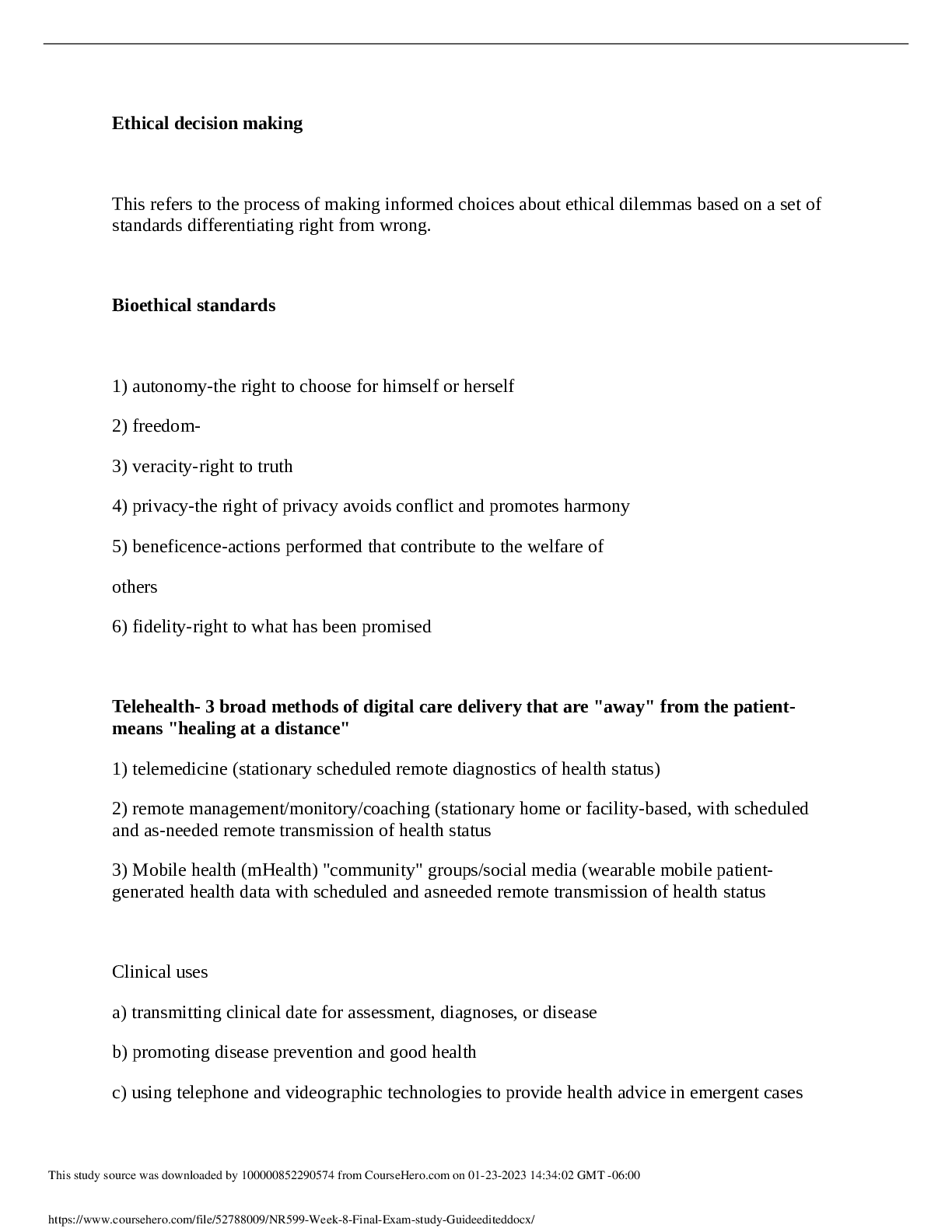
Reviews( 0 )
Document information
Connected school, study & course
About the document
Uploaded On
Oct 26, 2020
Number of pages
7
Written in
Additional information
This document has been written for:
Uploaded
Oct 26, 2020
Downloads
0
Views
87
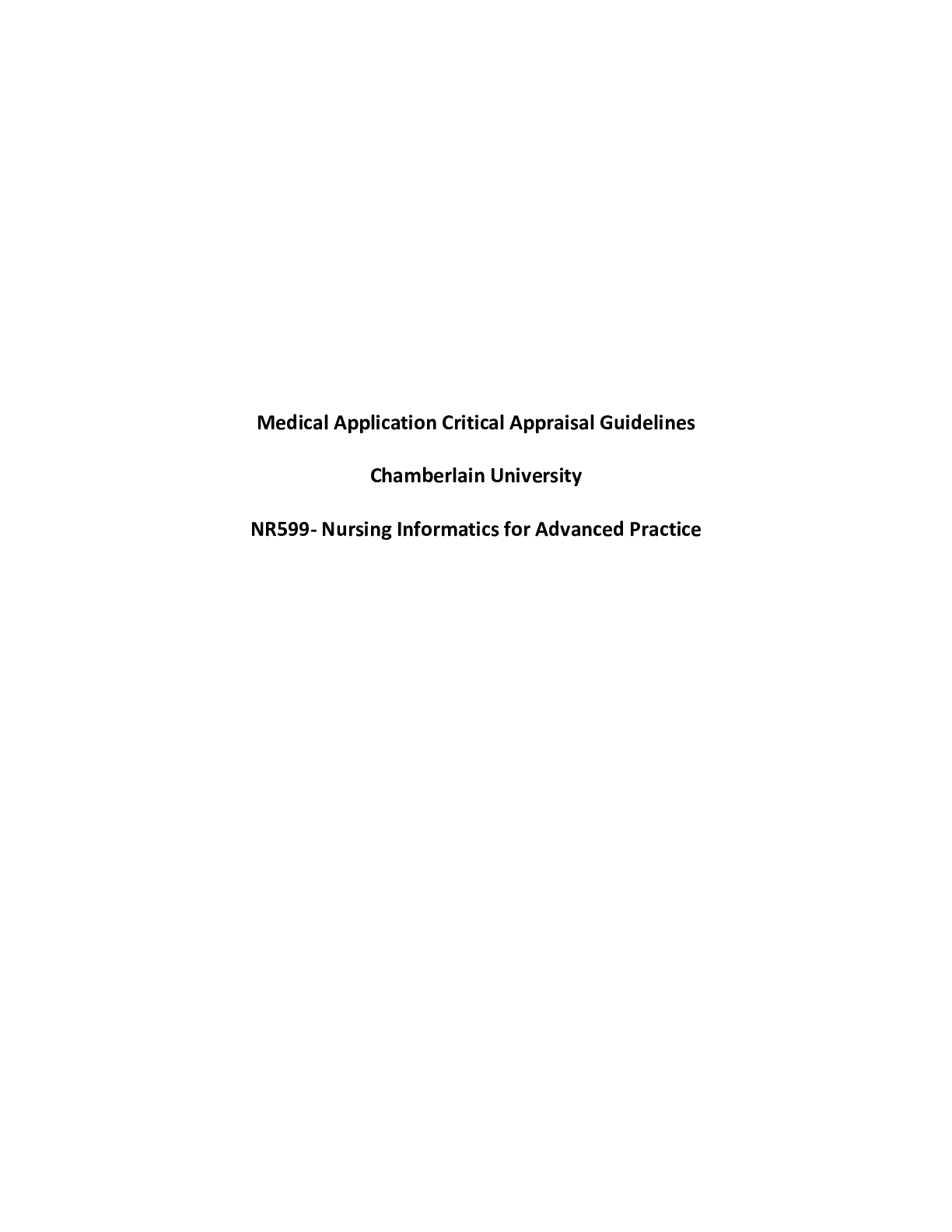

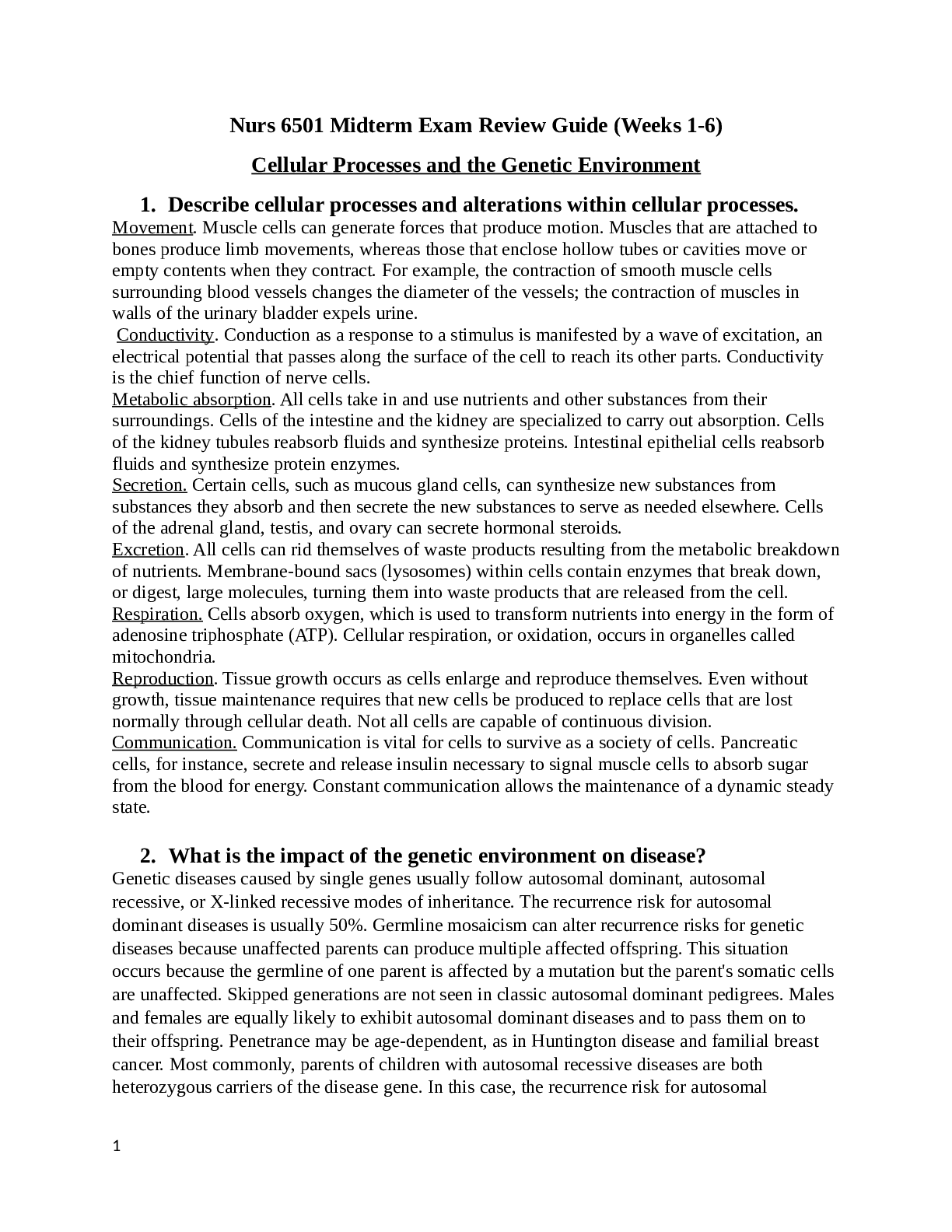

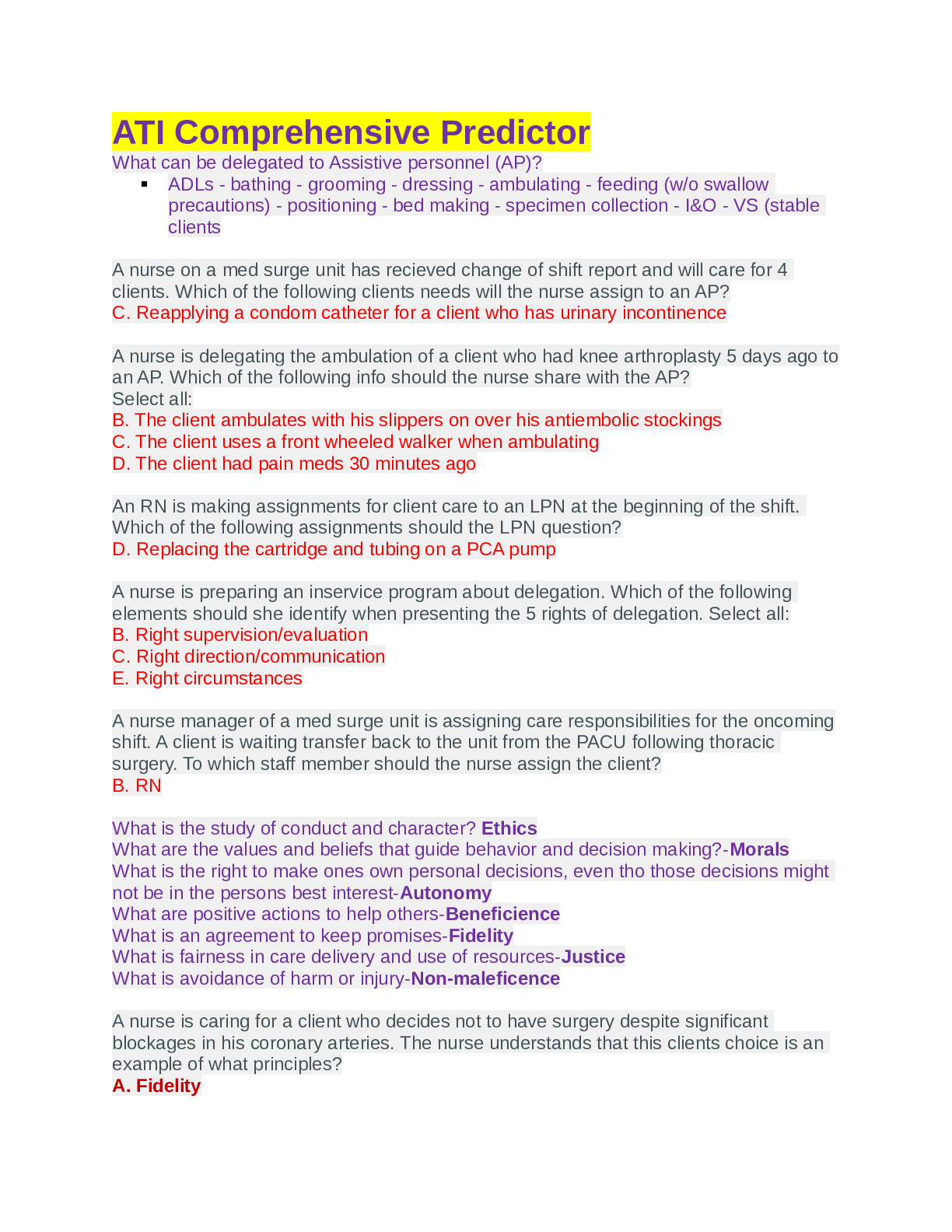
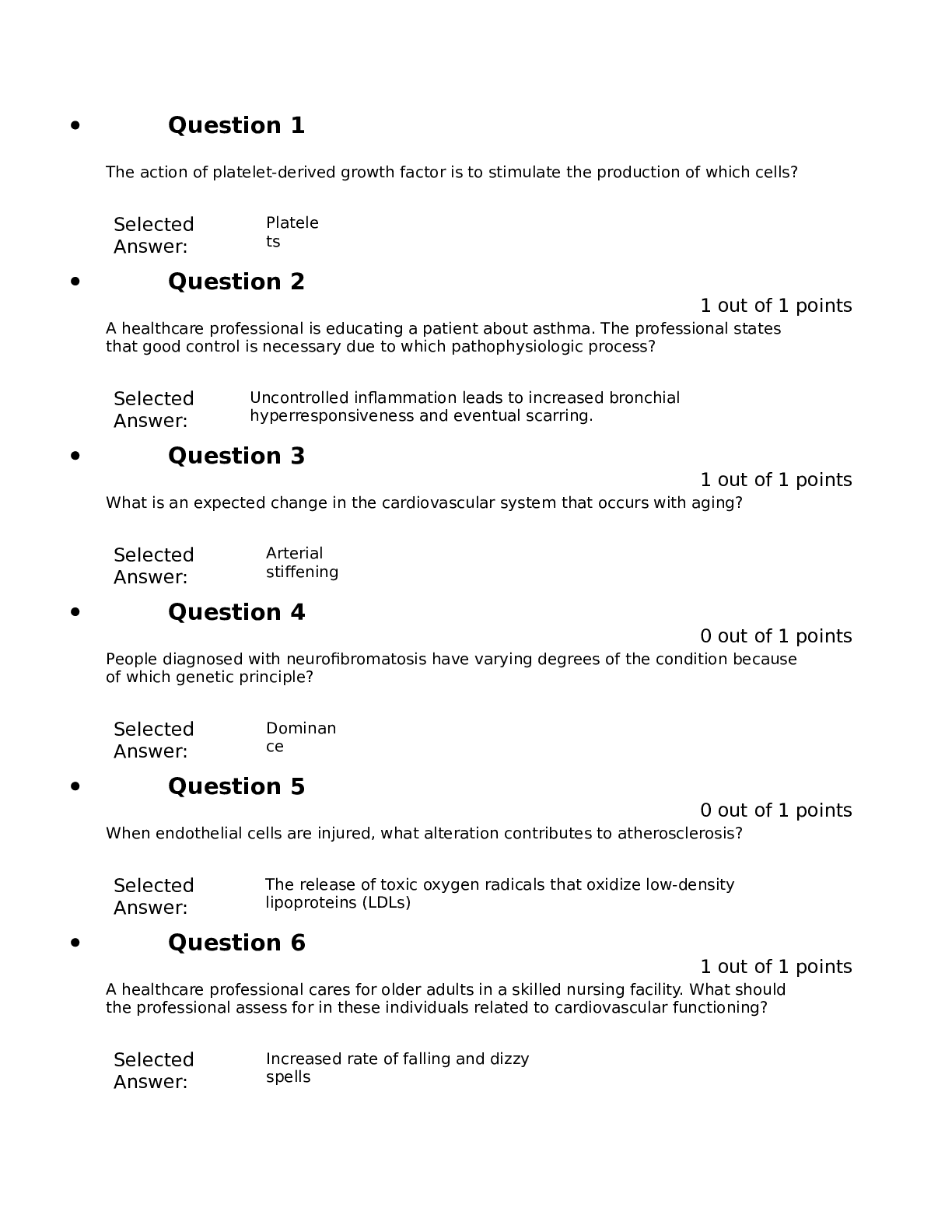
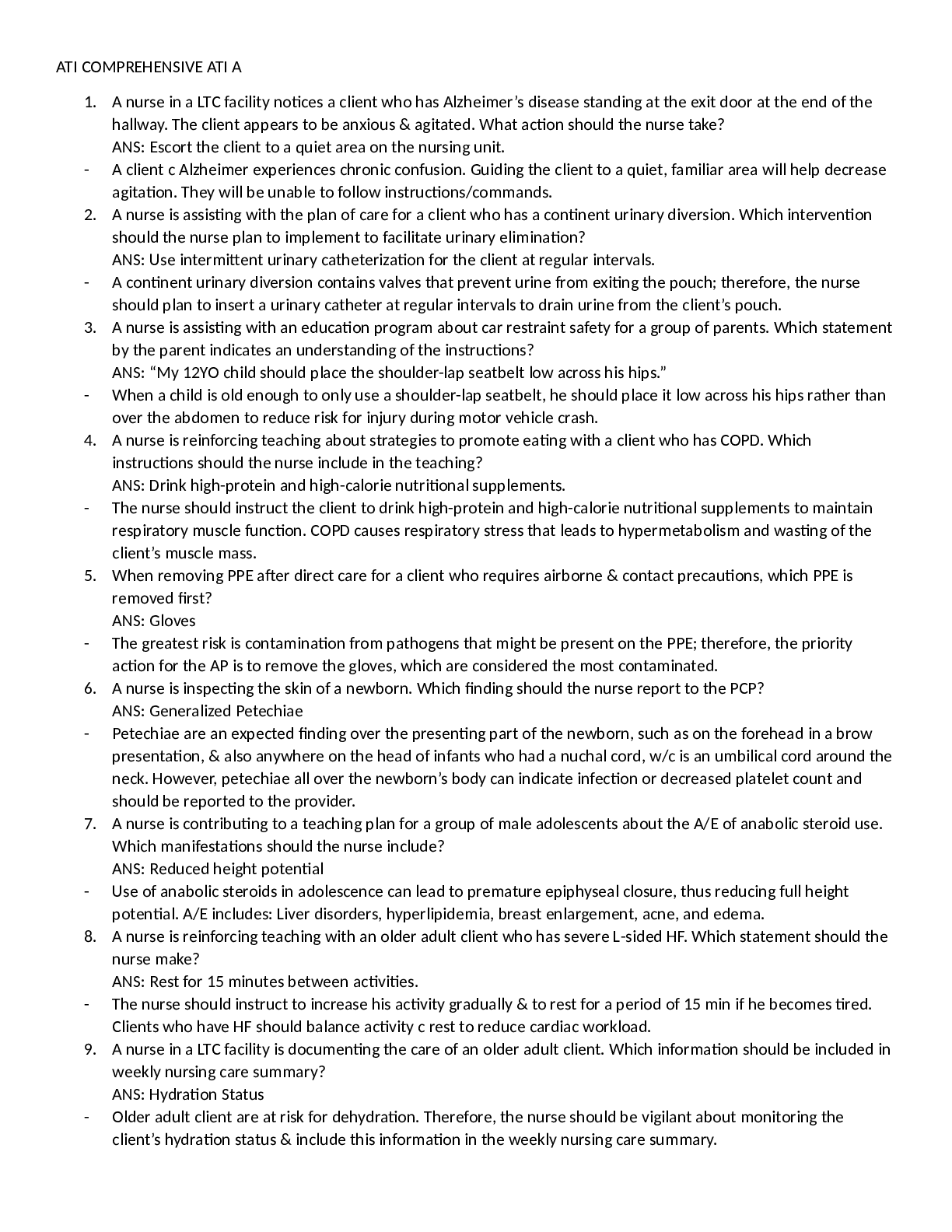

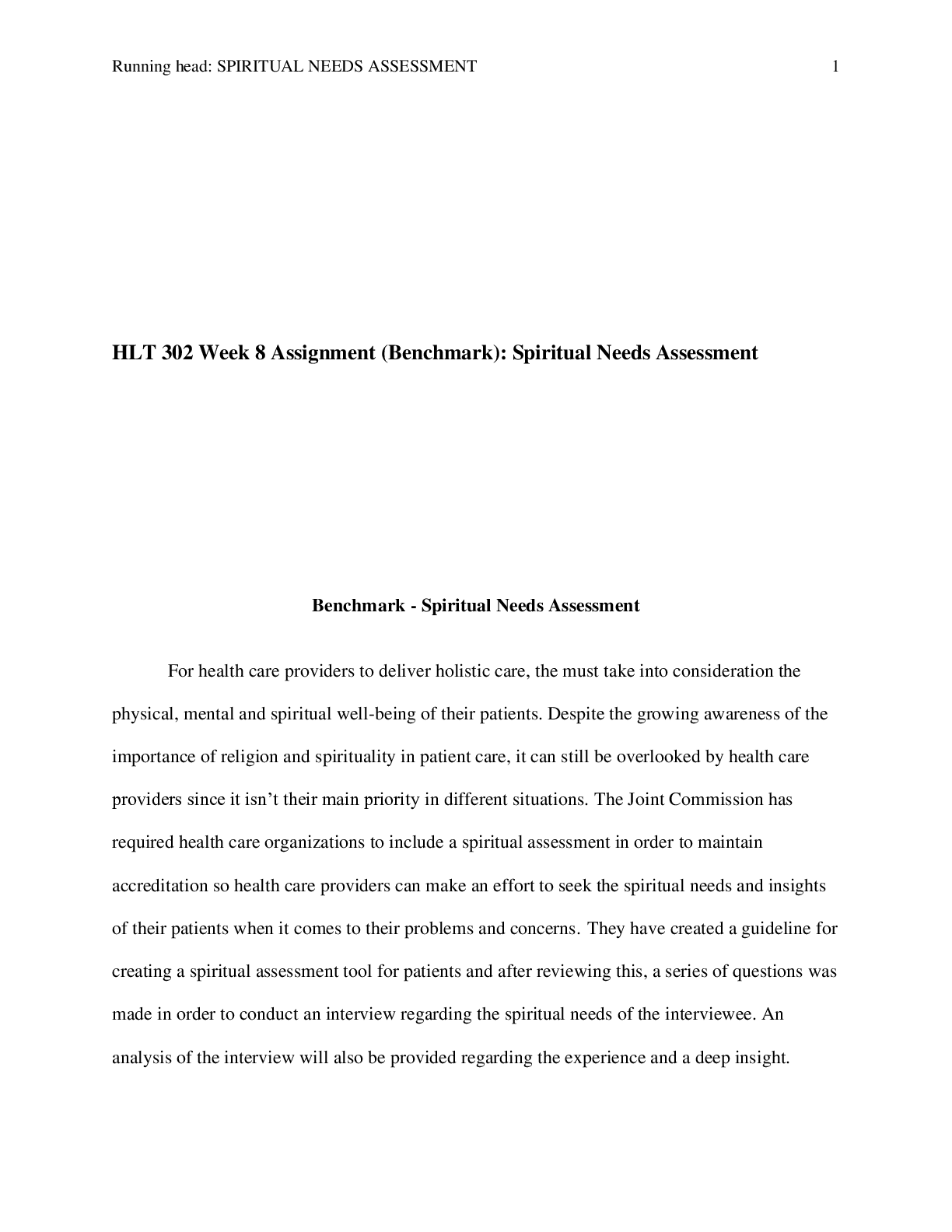


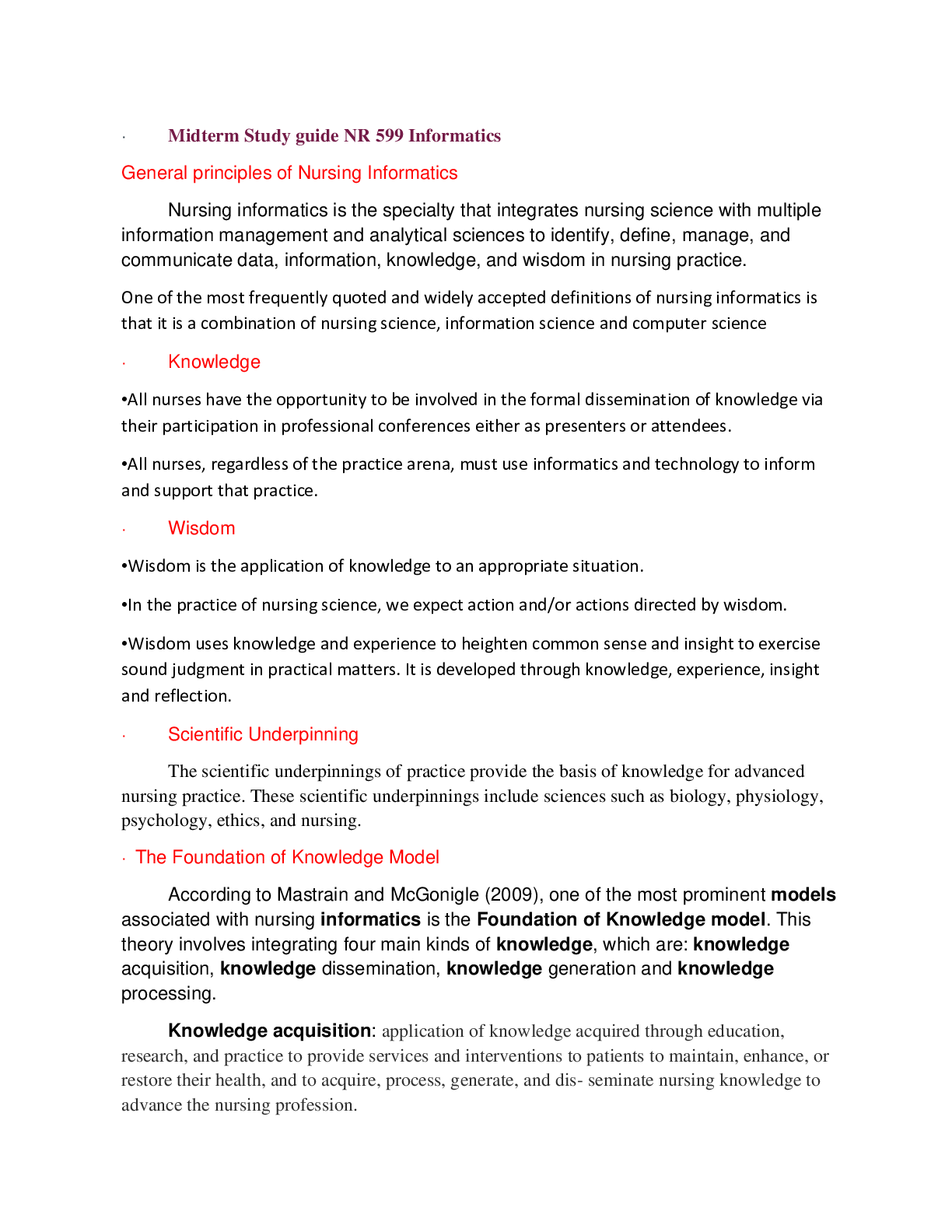
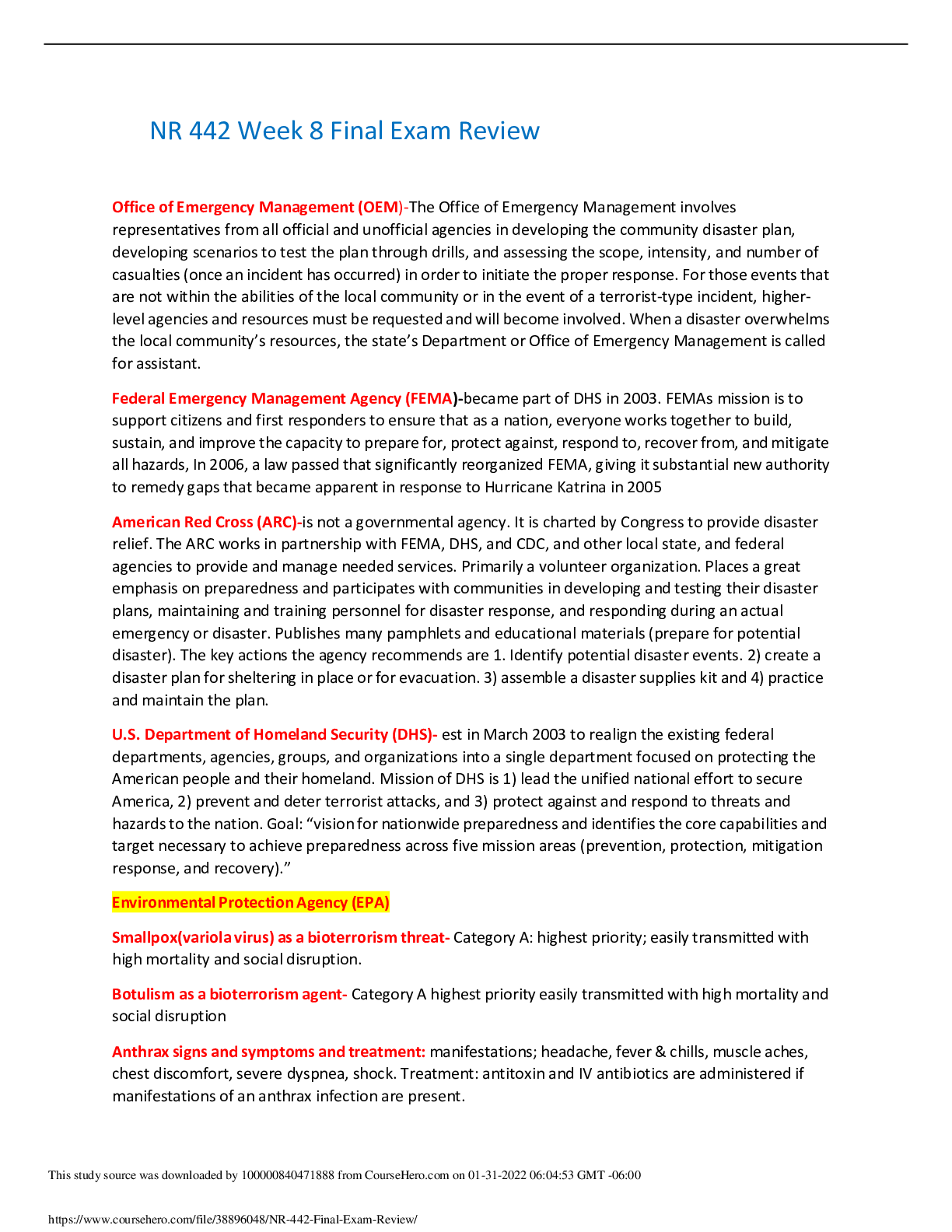

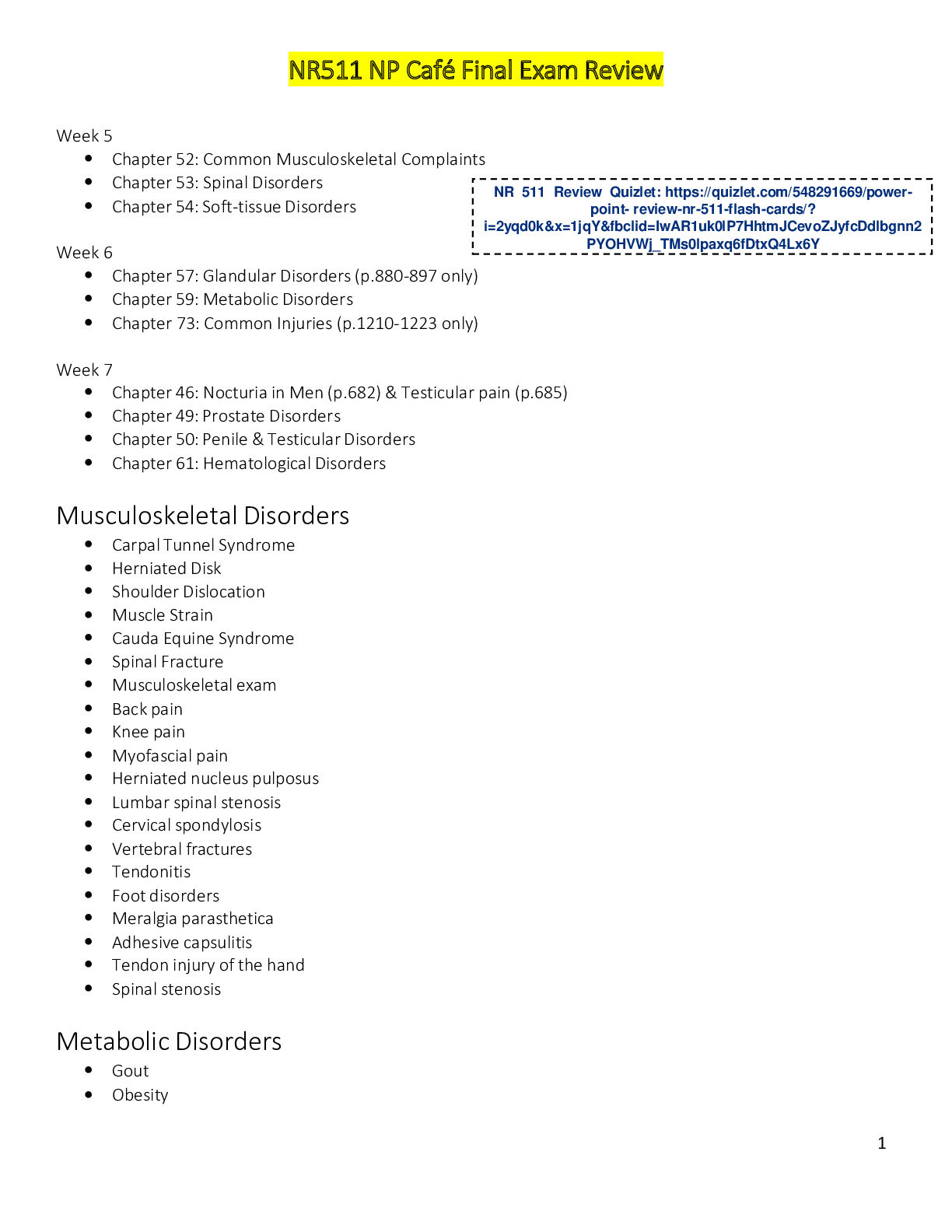
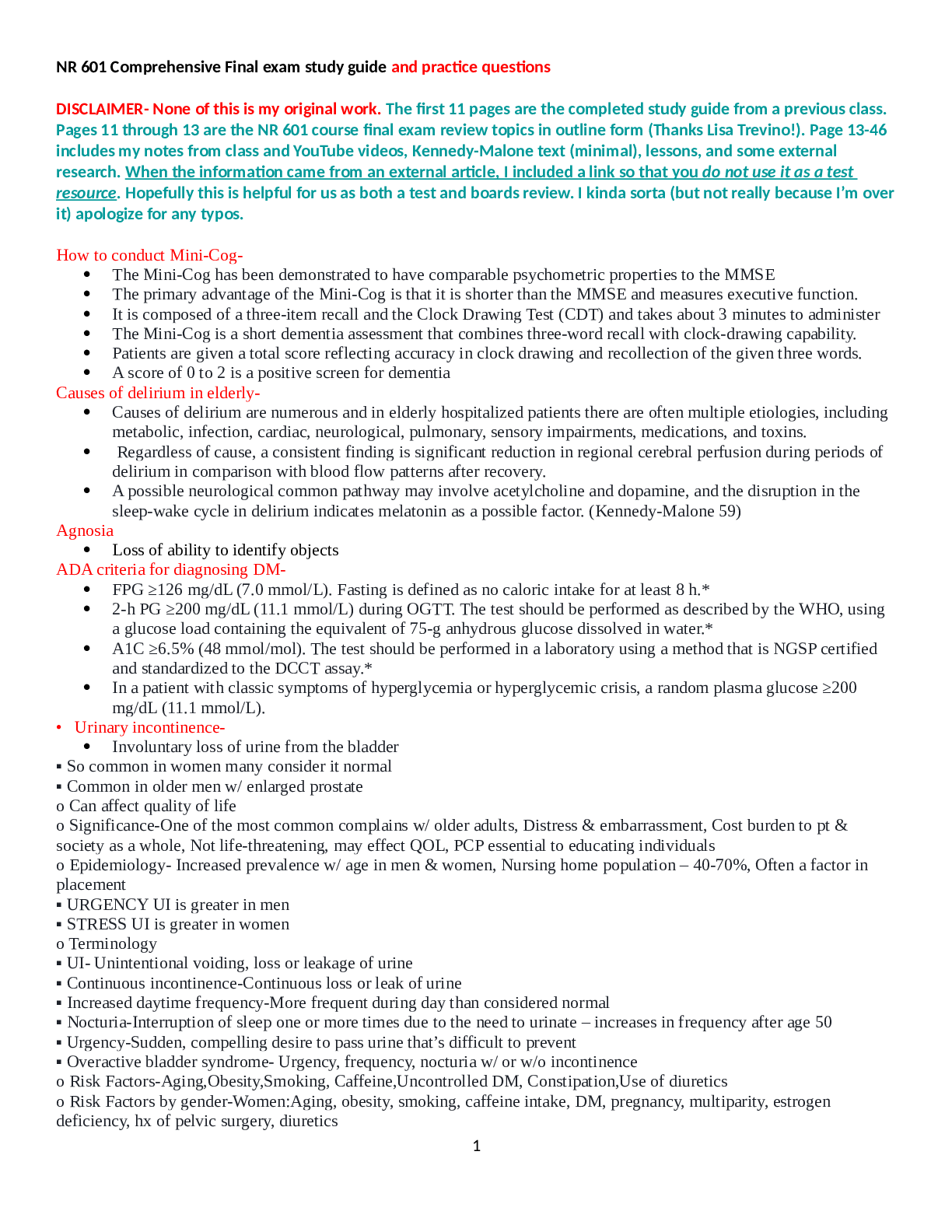
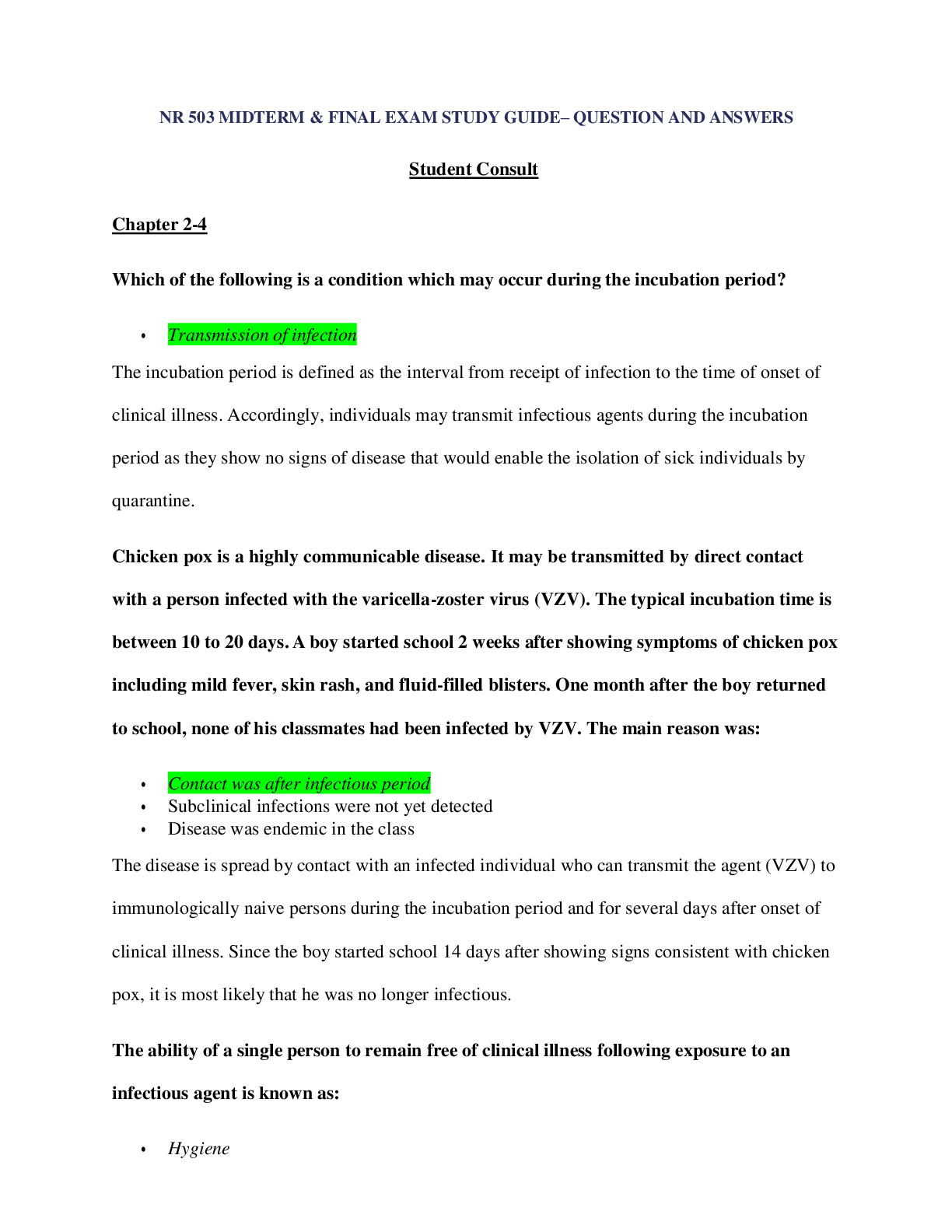


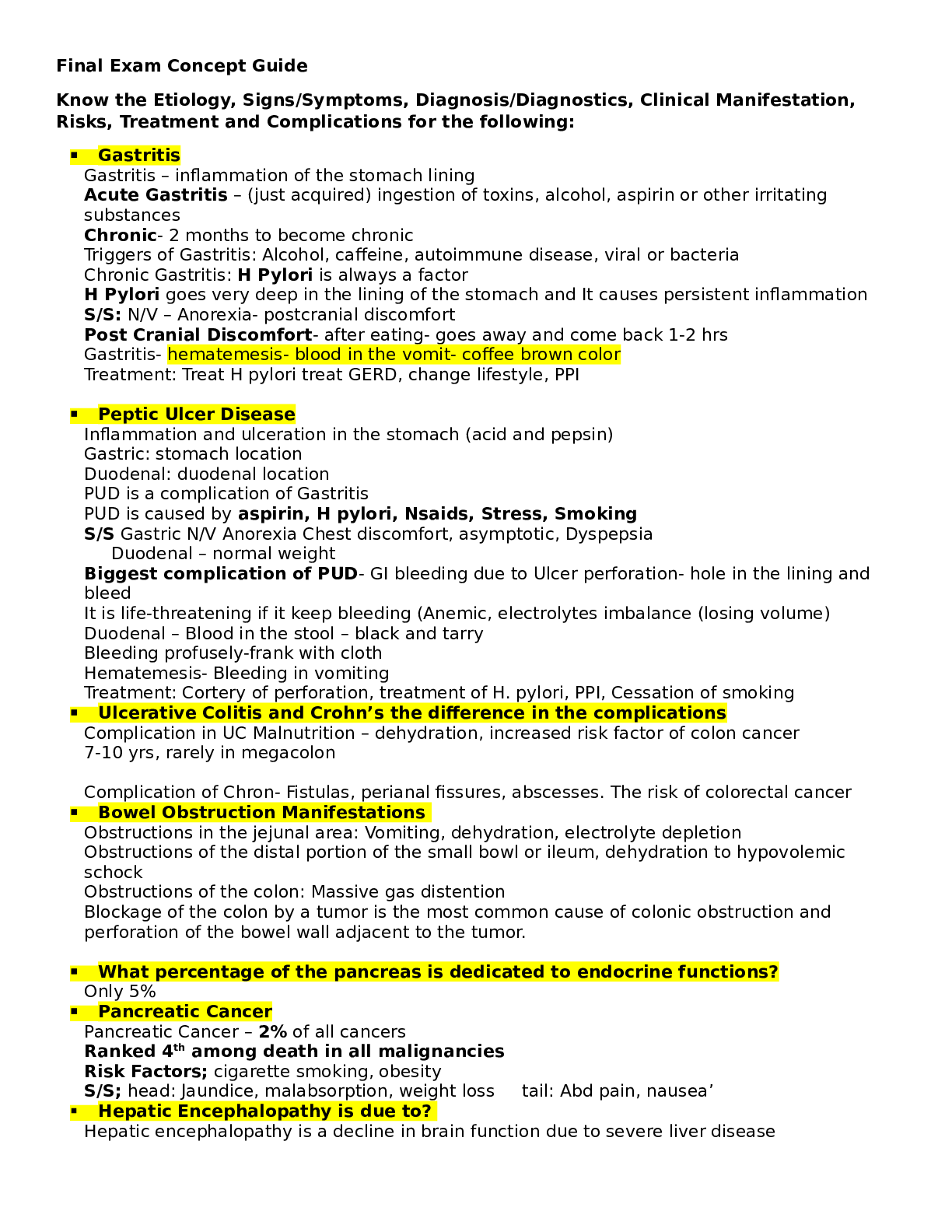
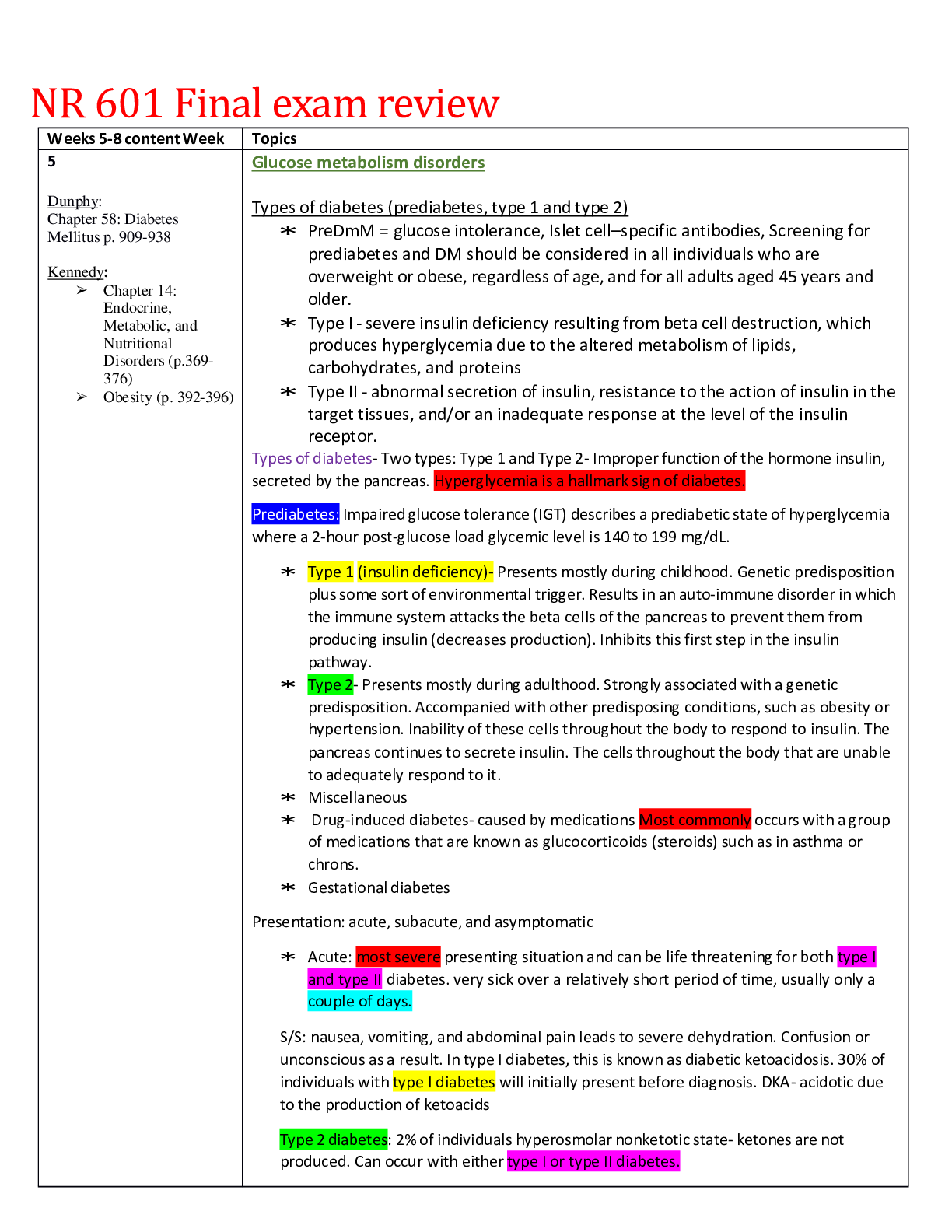
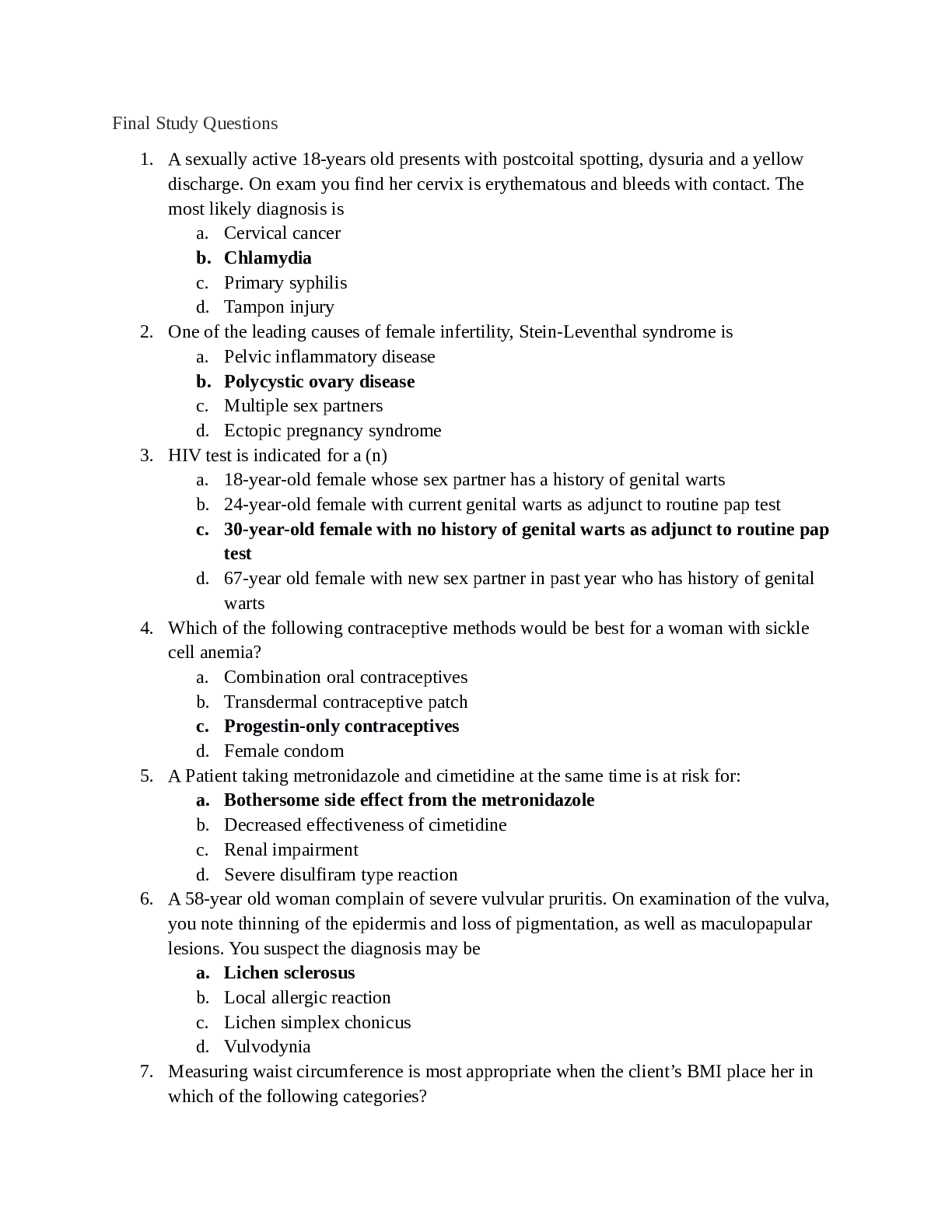
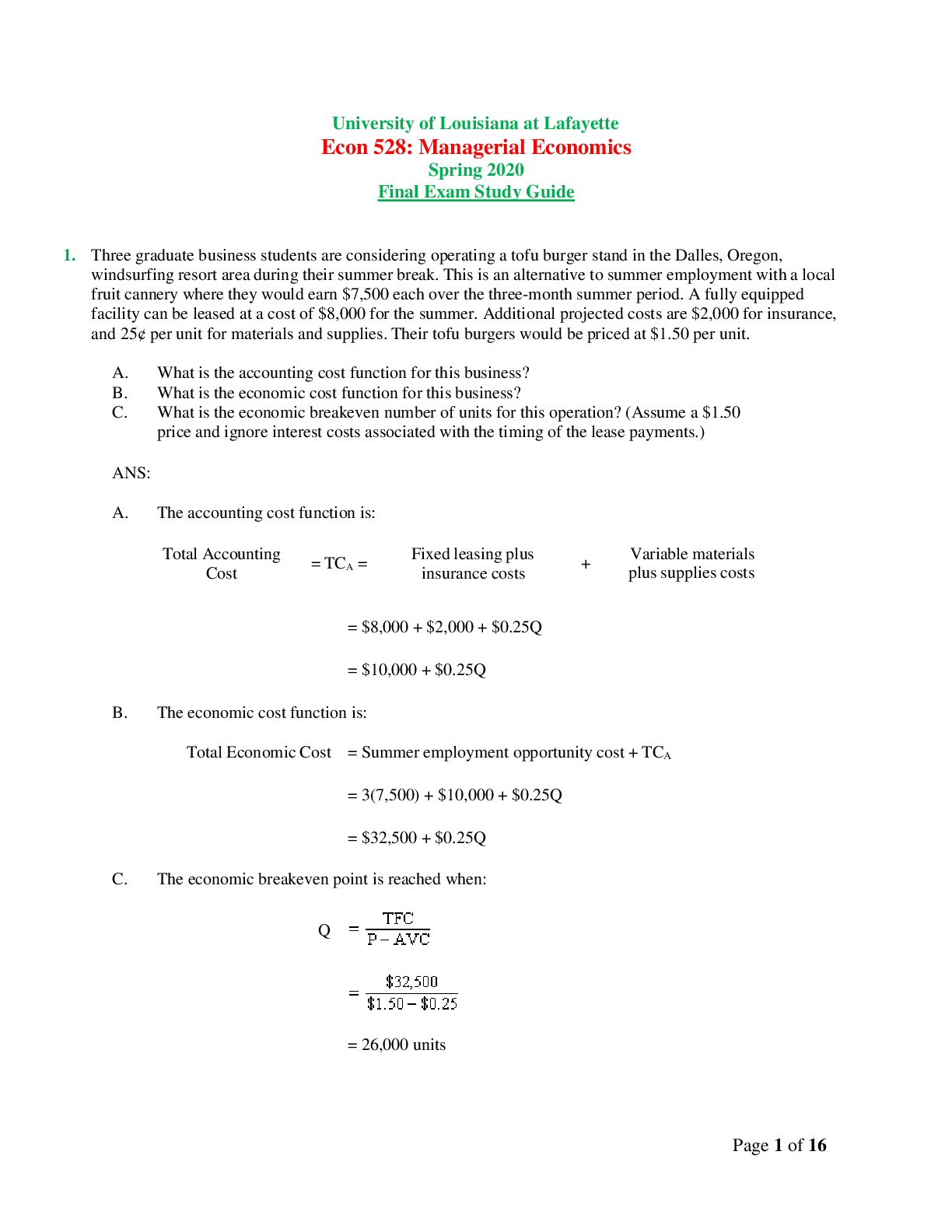
.png)
